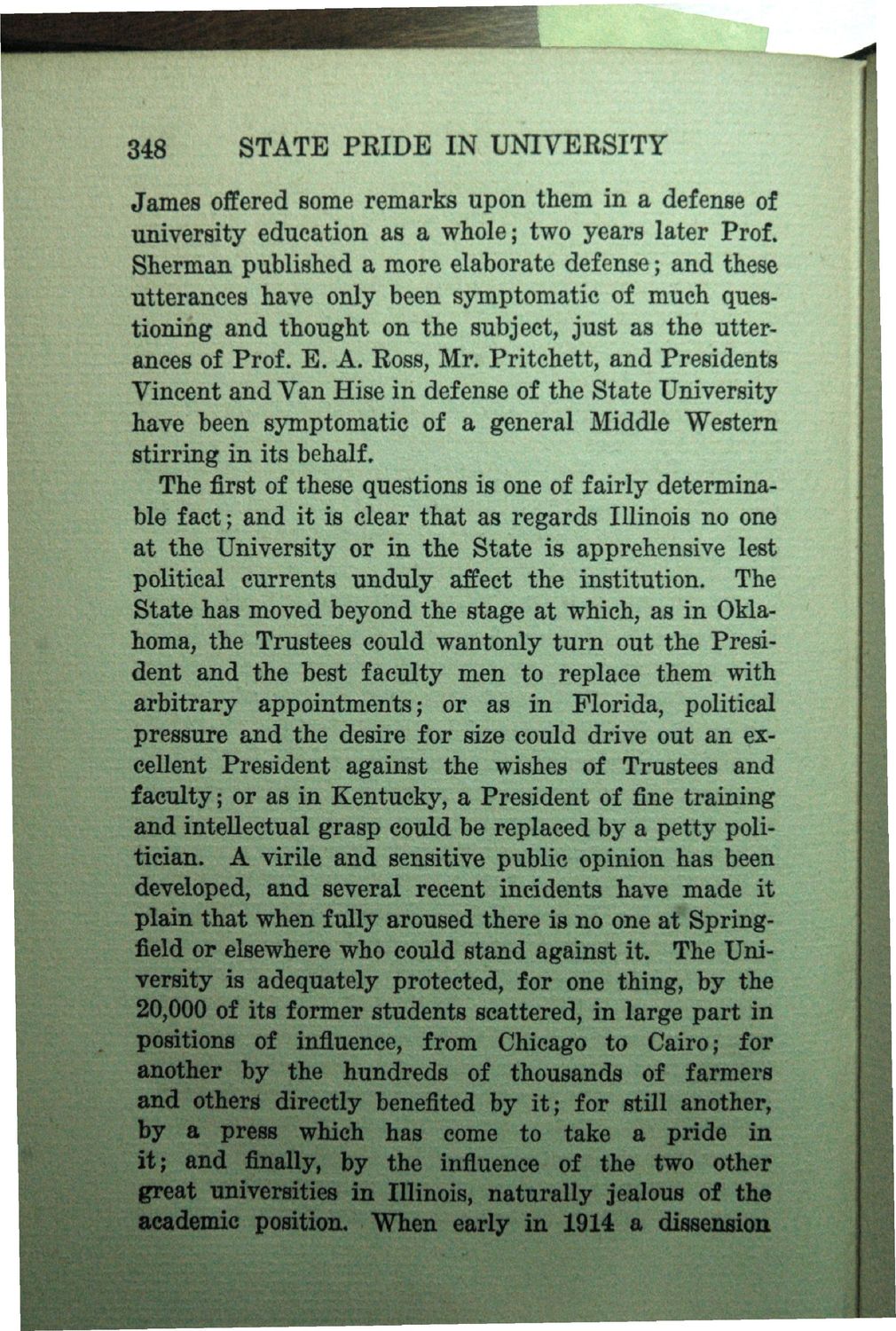| |
| |
Caption: Book - History of the University (Nevins)
This is a reduced-resolution page image for fast online browsing.

EXTRACTED TEXT FROM PAGE:
1 348 STATE PRIDE IN UNIVERSITY James offered some remarks upon them in a defense of university education as a whole; two years later Prof. Sherman published a more elaborate defense; and these utterances have only been symptomatic of much questioning and thought on the subject, just as the utterances of Prof. E. A. Ross, Mr. Pritchett, and Presidents Vincent and Van Hise in defense of the State University have been symptomatic of a general Middle Western stirring in its behalf. The first of these questions is one of fairly determinable fact; and it is clear that as regards Illinois no one at the University or in the State is apprehensive lest political currents unduly affect the institution. The State has moved beyond the stage at which, as in Oklahoma, the Trustees could wantonly turn out the President and the best faculty men to replace them with arbitrary appointments; or as in Florida, political pressure and the desire for size could drive out an excellent President against the wishes of Trustees and faculty; or as in Kentucky, a President of fine training and intellectual grasp could be replaced by a petty politician. A virile and sensitive public opinion has been developed, and several recent incidents have made it plain that when fully aroused there is no one atfSpringfield or elsewhere who could stand against it. The University is adequately protected, for one thing, by the 20,000 of its former students scattered, in large part in positions of influence, from Chicago to Cairo; for another by the hundreds of thousands of farmers and others directly benefited by it; for still another, by a press which has come to take a pride in it; and finally, by the influence of the two other great universities in Illinois, naturally jealous of the academic position. When early in 1914 a dissension
| |